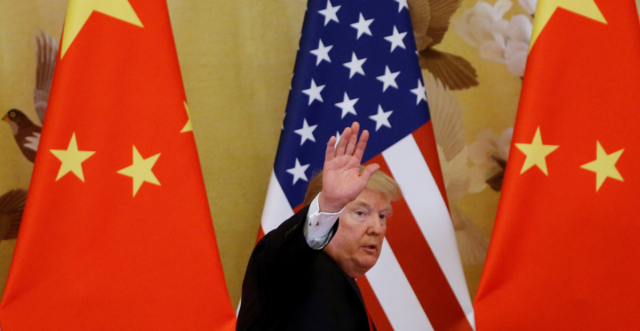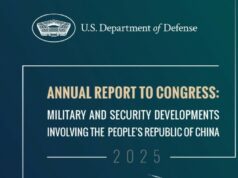In the event of Donald Trump winning the Nov 5 presidential election, what is it that India can expect? PS Raghavan, chairman of the National Security Advisory Board and former ambassador to Russia, believes some conclusions can be drawn from the 2025 Presidential Transition Project, a report prepared by 50 conservative think tanks coordinated by the Heritage Foundation.
In a brief for the Vivekananda International Foundation titled Project 2025: What a Trump Administration Portends for India, Raghavan writes that advancing India-US relations is a crucial objective.
He references a detailed strategy paper by Heritage researcher Jeff Smith, who argues, in the Project 2025 report, that India plays a crucial role in countering the Chinese threat and is an important emerging US economic partner.
“It is a crucial security guarantor for the key routes of the Indian Ocean, and an important partner in coordinating for a free and open Indo-Pacific.”
The mandate does not suggest India’s inclusion in a defence pact that could include Taiwan, Japan, Australia and other US allies in the region.
The US South Asia strategy should prioritize the long-term development of the India-US partnership over short-term tactical considerations, “including managing differences over Russia and the Ukraine crisis or the issue of CAATSA sanctions.”
Build a Middle East security pact including Israel, Egypt and the Gulf states and potentially India, as a second “Quad” arrangement. All of them have a shared interest in the region including protecting freedom of navigation in the Gulf and in the Red Sea/ Suez Canal.
On the flip side, “India has to brace for a repeat of the 2016-20 experience, though its economy maybe better prepared to absorb some of the consequences,” Raghavan writes.
This was when Trump labelled India a “Tariff King”, claiming high taxes by India on certain US products including Harley Davidson motorcycles and threatened reciprocal duties.
He withdrew the GSP that gave India preferential access to the American market and raised the import duty on Indian steel and aluminium products.
But Project 2025, Raghavan notes, is essentially about China’s “malign intentions and action” and its “strategic, cultural and economic Cold War against America’s interests, values and people.”
China is accused of espionage, of stealing US technology, undermining American jobs and manufacturing. Big Tech is described as a “tool of China’s government” and accused of sending data about America to the Chinese Communist Party, even sending out data with military and intelligence applications.
Deeming competition and cooperation with China as a failure, Project 2025 calls for “strategic decoupling” and the use of all levers to thwart China and recommends a package of 13 measures including:
Expanding tariffs on all Chinese products except those required by the US, incentivize US firms to move out of China and return home, ban Chinese firms from bidding on US government contracts, stop all Chinese investment in US high tech industry, eliminate US dependence on Chinese supply chains and so on.
“Re-hemisphering” manufacturing and industry closer to home will address supply chain issue and bring improvement to economically strained parts of the US. It means countries in China’s neighbourhood eyeing benefits from China-plus one strategy (India included) should reassess their viability.
In the military domain, “Chinese subordination of Taiwan should be made prohibitively difficult,” and the US should treat missile defence as top priority. There is a division of opinion on Ukraine but an emerging view is US help should be limited to military aid while Europe provides economic assistance.
The paper calls for all help to Israel, regime change in Iran, getting more Arab states to join the Abraham Accords and weaning Turkey back into the Western fold. Not to miss, de-funding the Palestinian Authority.
Thirty eight years in journalism, widely travelled, history buff with a preference for Old Monk Rum. Current interest/focus spans China, Technology and Trade. Recent reads: Steven Colls Directorate S and Alexander Frater's Chasing the Monsoon. Netflix/Prime video junkie. Loves animal videos on Facebook. Reluctant tweeter.





